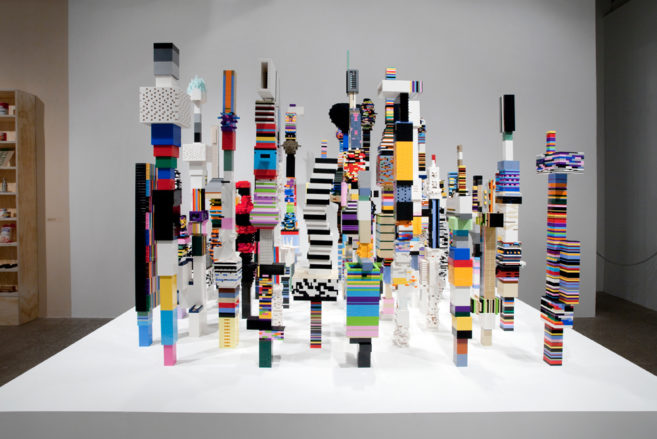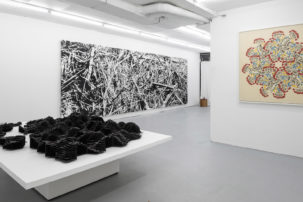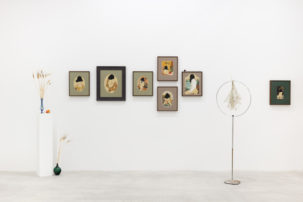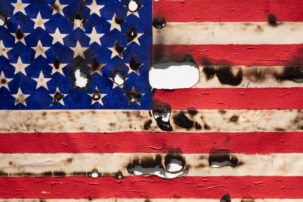The Vancouver Aquarium stands not far from relics of the past, namely an abandoned, concrete-pit polar-bear exhibit evocative of both Jurassic Park and Fritz Lang’s Metropolis. Polar bears lived in captivity there until the 1997, when the Stanley Park Zoo was shut down. Inside the enclosure, a chain-link door now hangs on its hinges.
Guests at the preview of Vortex, Douglas Coupland’s “radical art installation” at the Vancouver Aquarium, were invited, via press release, to “immerse [themselves] in the ocean plastic pollution crisis in a contemplative and transformative way.” Select guests could “explore the exhibit in an intimate setting as [they] enjoy[ed] canapés.”
Though longstanding, worry over plastic waste feels zeitgeisty, particularly worry over plastics that gather in the ocean, creating enormous garbage patches or “gyres.” For years, Coupland incorporated plastics and their shiny, mass-market associations into his work. In 2013, he had an epiphany on the beach in Haida Gwaii, when a plastic bottle identical to one he once bought in Japan washed up at his feet. Coupland thus conceived of Vortex with the express intent of helping viewers picture the unimaginable (read, un-Googleable: few photos of the Pacific Trash Gyre can demonstrate its true scale). In the show’s most emotional moment, a salvaged Japanese fishing boat floats atop 50,000 litres of water and plastic debris from the Haida Gwaii shoreline.
In parts of the installation, tanks are filled with small jellyfish and plastic water bottles, each as ethereal and directionless as the other. In another tank, small fish swim among Lego towers and what appears to be a tiny replica of a Japanese Metabolist apartment block. There is a serene and spooky quality to the atmosphere: lighting is dim and a shoreline soundtrack of squawking birds is piped in. After years of irony, Coupland is entirely sincere; the viewer feels either manipulated, guilty or both. He tries to mitigate this with optimistic takeaways that nonetheless feel trite: “This knowledge and responsibility starts with you. You can do it.”
I can’t help but compare Coupland’s effort to more elliptical approaches to the same theme: David Lynch’s hour-long opus midway through Twin Peaks: The Return, for instance, a haunting, oblique meditation on nuclear weaponry. Ironically, Vortex’s sad neighbour speaks more profoundly of a damaged and diminishing natural world than anything in the installation, that one-time polar-bear habitat now so overrun with plants it appears almost tropical.
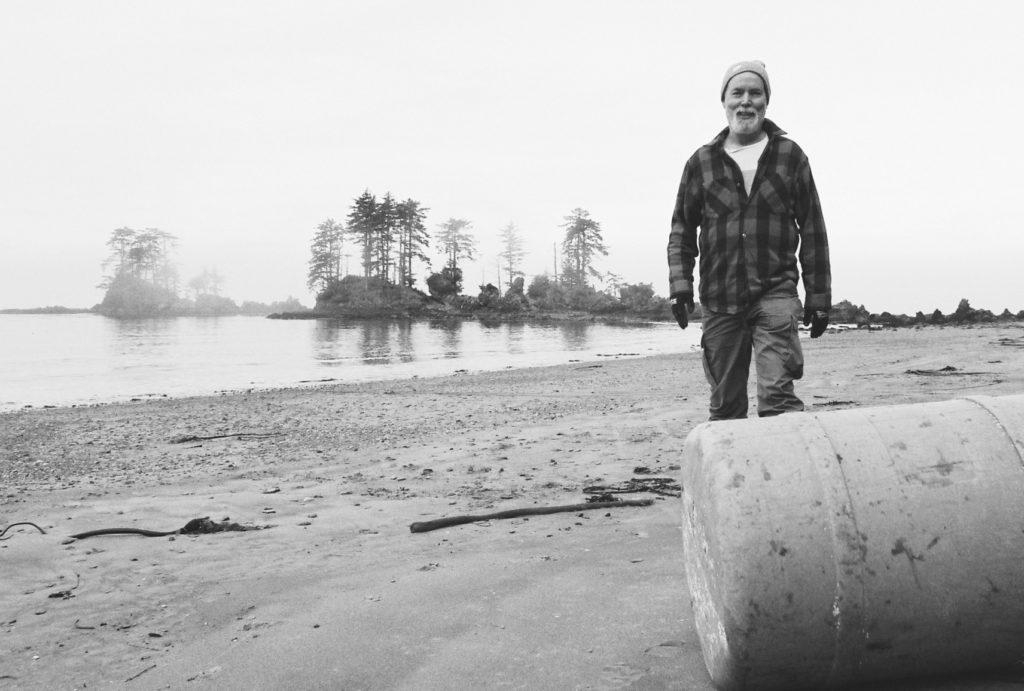
Douglas Coupland in Haida Gwaii with plastic barrel. Photo: JL Gijssen.

Douglas Coupland, Vortex (detail), 2018. Photo: Ocean Wise.

A wall of plastic items at Douglas Coupland's installation Vortex (2018). Photo: Ocean Wise.

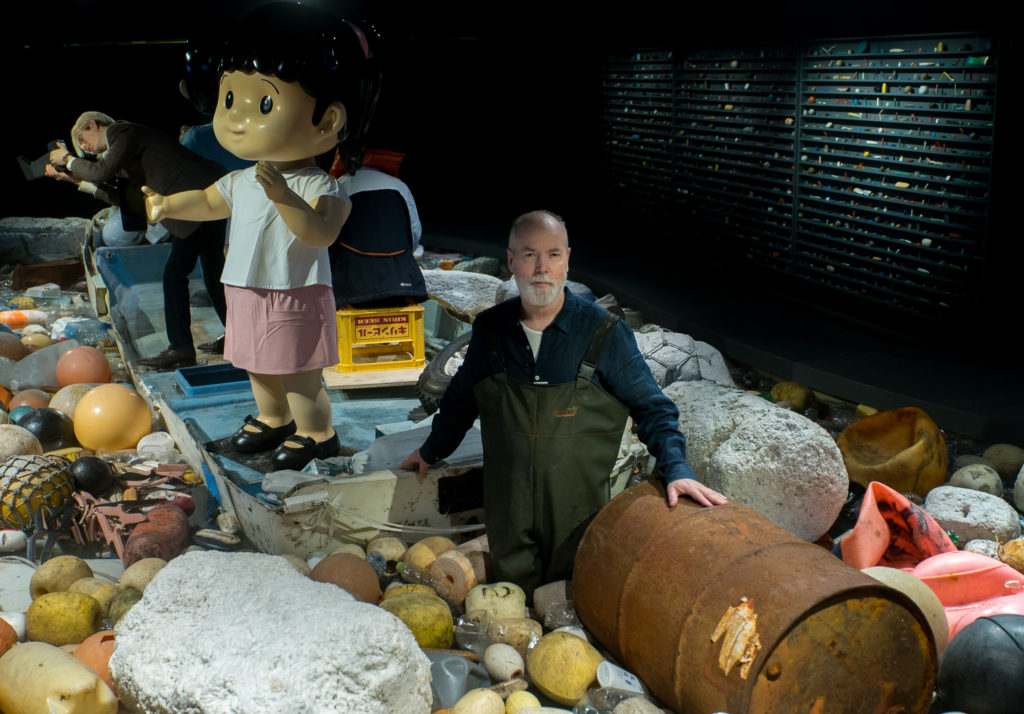 Douglas Coupland with his installation Vortex (2018). Photo: Ocean Wise.
Douglas Coupland with his installation Vortex (2018). Photo: Ocean Wise.
